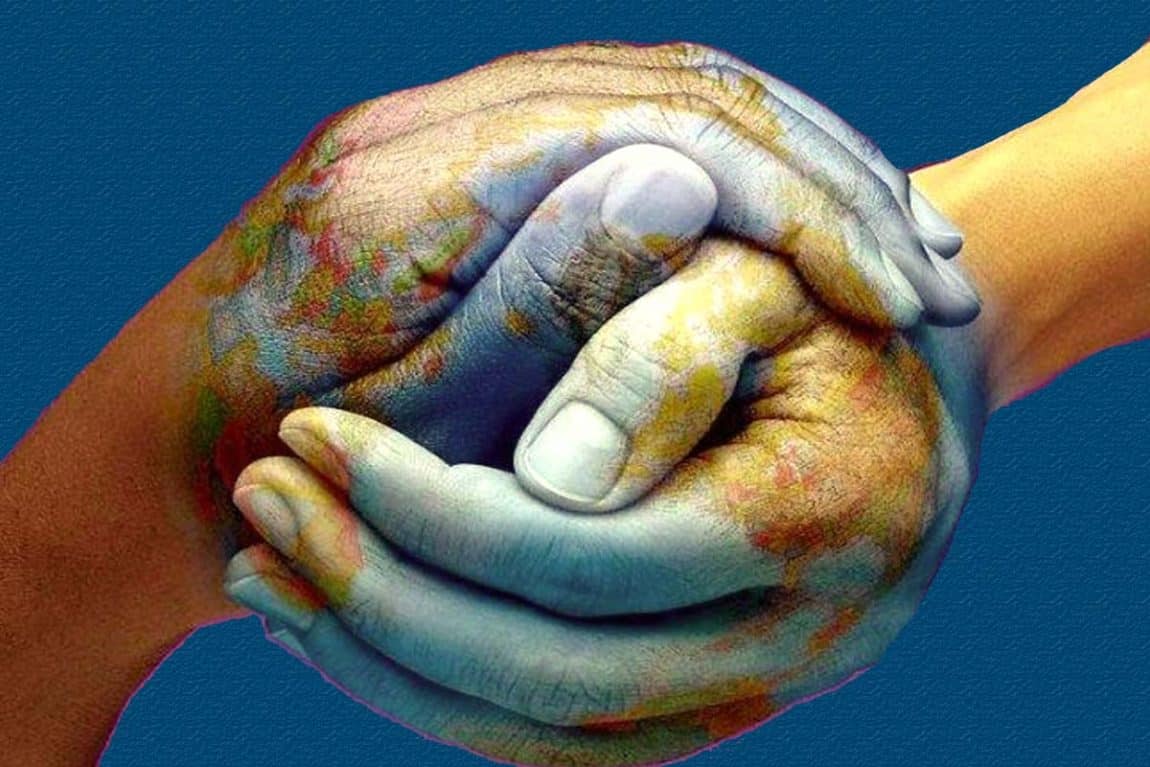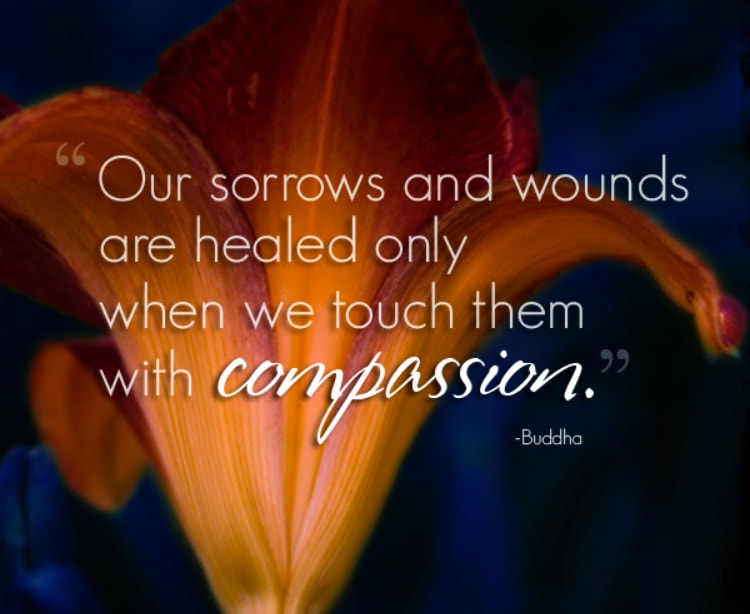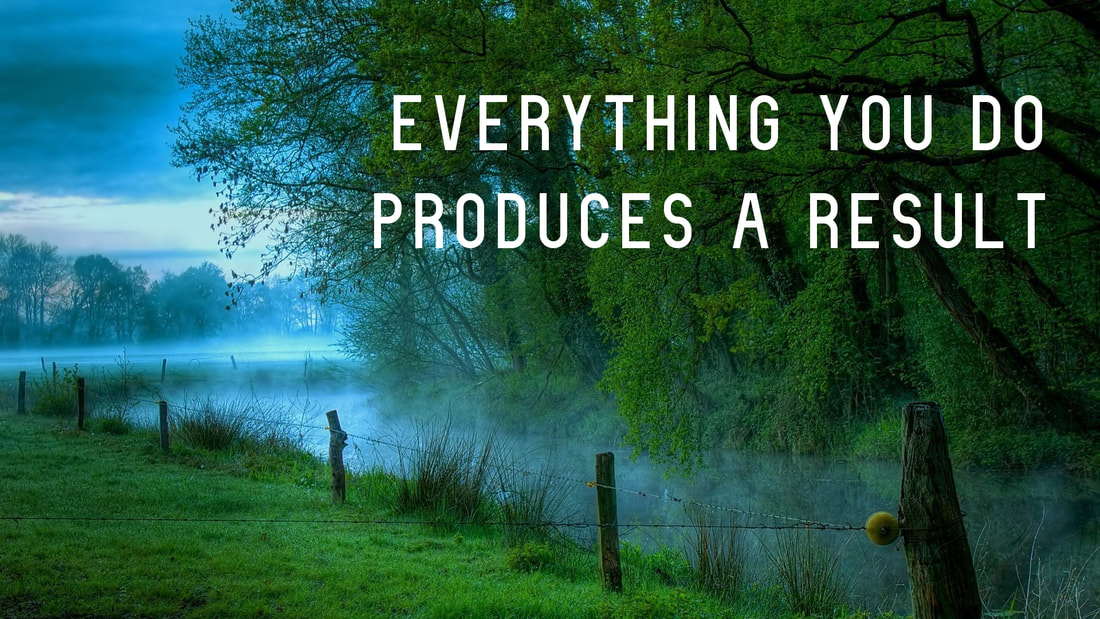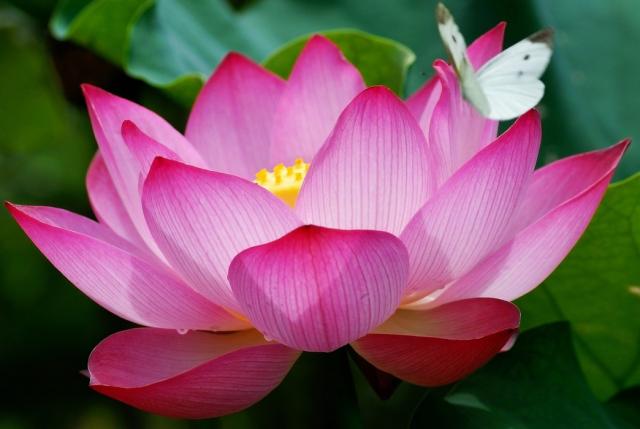Extending yourself through compassion toward someone in need is one of the quickest ways to feeling joy, fulfillment and happiness. When we ignore suffering, or we become so consumed with our own busy schedule that we miss the opportunity to practice compassion, we are missing opportunities to connect and foster relationships, to feel good about our selves and to feel happiness.
In addition to cultivating self-compassion, here are two additional ways to cultivate compassion:
Mindfulness
You can’t offer compassion if you don’t see the suffering around you. A lot of us are waling through life in what's being called an "urban trance". We are entrenched in the busyness of our lives, running on the hamster wheel of life and not paying attention to our own needs or the needs of those around us.
Mindfulness allows you to see what’s happening within and around you. Mindfulness is the awareness that arises through paying attention on purpose in the present moment, non-judgmentally. Putting down the phone, shutting down the laptop, taking a few deep breaths, and observing your own body and mind. Do you feel tightness anywhere, is your mind replaying something you did “wrong,” or are you worrying about something you can’t control? Notice, label any feelings and breathe.
Then take a look around and notice what’s happening around you. What do you see? What do you hear and smell? Stopping and observing what's going on around you and within you is the first step toward cultivating more compassion.
An easy and awesome way to practice compassion for yourself and others is through a compassion meditation (usually called a loving-kindness or metta). I've included below a simple loving kindness meditation sample for you to try. I love to do this particular meditation while I am walking my dog. It's simple to do and makes me feel great!
Compassion for Humanity
You may find it easy to be compassionate toward family, friends, and others like you, but it can be more difficult to have compassion for people you don’t know of for individuals who you don’t particularly like or identify with. This is where it's becomes important to practice recognizing our common humanity.
There is basic commonality between all humans. Consider that everyone wants to be happy. Everyone has a mind, a body, and a heartbeat. Everyone has dreams. Everyone has fears. Everyone wants to be loved. Everyone wants to be healthy and happy. It helps to remember that we are all one. Whatever effects you and impacts you in turn impacts me.
As the Dalai Lama states, "Once you encourage the thought of compassion in your mind, once that thought becomes active, then your attitude towards others changes automatically. If you approach others with the thought of compassion, that will automatically reduce fear and allow an openness with other people."
This takes some practice, but it can change the way you interact with the world. It will make you feel more connected to the world. Practicing a loving kindness mediation also helps to cultivate compassion for all of humanity.
I love what the Dalai Lama says about compassion in the book, The Art of Happiness, he says, "Within all beings there is the seed of perfection. However, compassion is required in order to activate that seed which is inherent in our hearts and our minds."
Loving-Kindness (Metta) Meditation
This meditation is the simple repetition of the following phrases:
May you be healthy and strong. May you be happy. May you be filled with love and ease.
-Directing them first toward someone you feel thankful for, someone who has helped you, or someone who you feel unconditional love for.
-Next direct them toward yourself.
-Next direct them toward someone you feel neutral about.
-Now direct them toward someone you struggle with, someone you are having a hard time with.
-Finally, direct them toward everyone in the Universe.
Imagine what the world would be like if we all practiced more compassion.





 RSS Feed
RSS Feed
